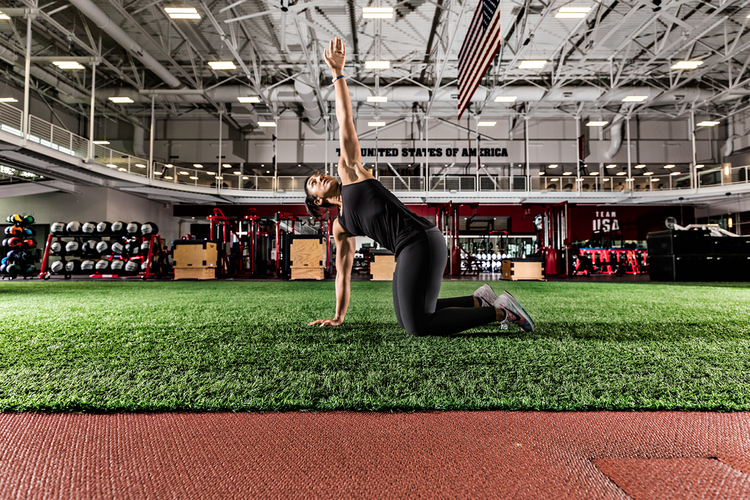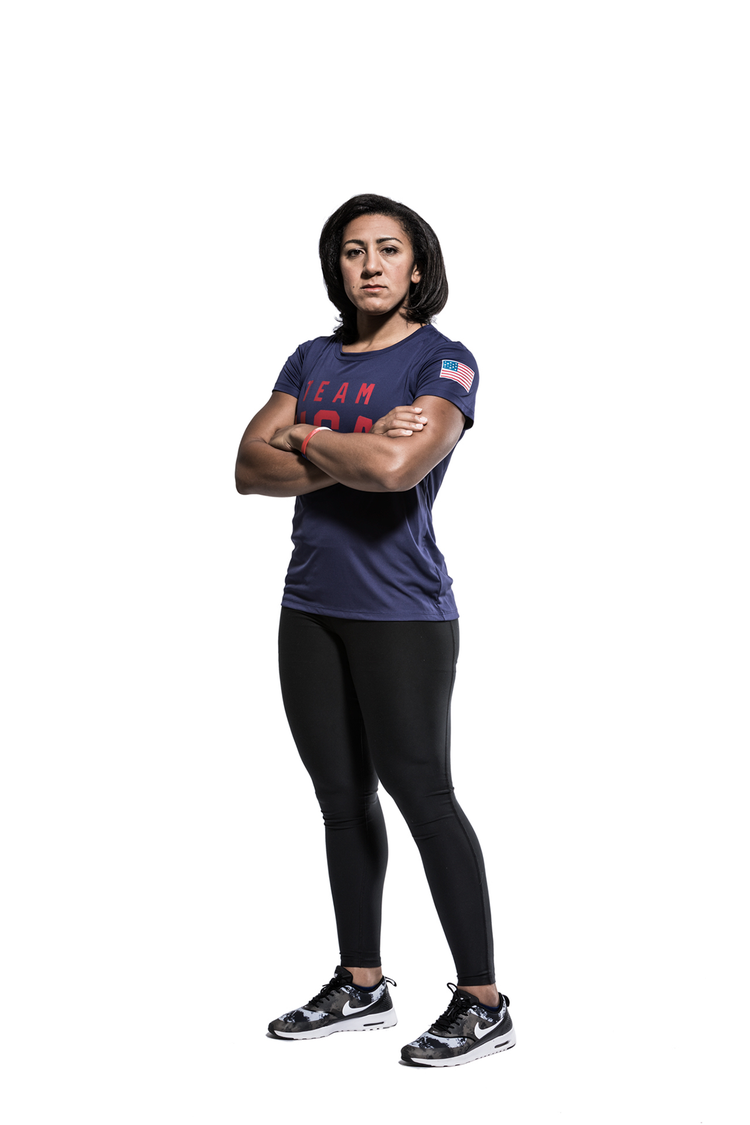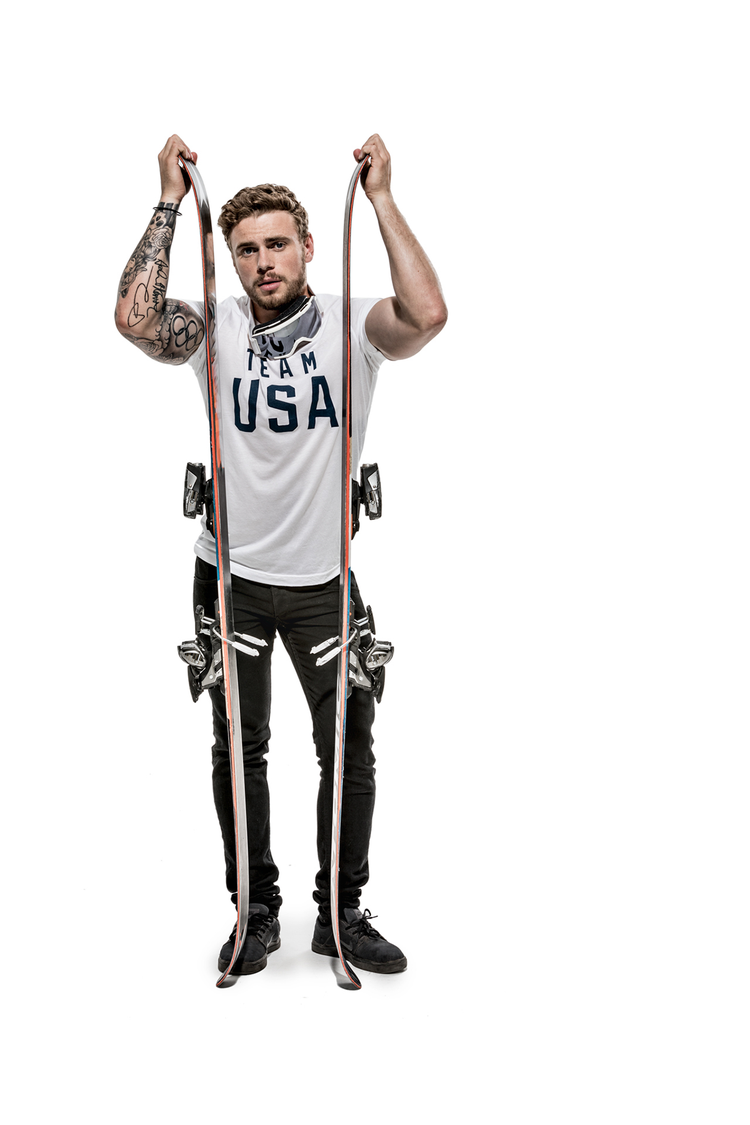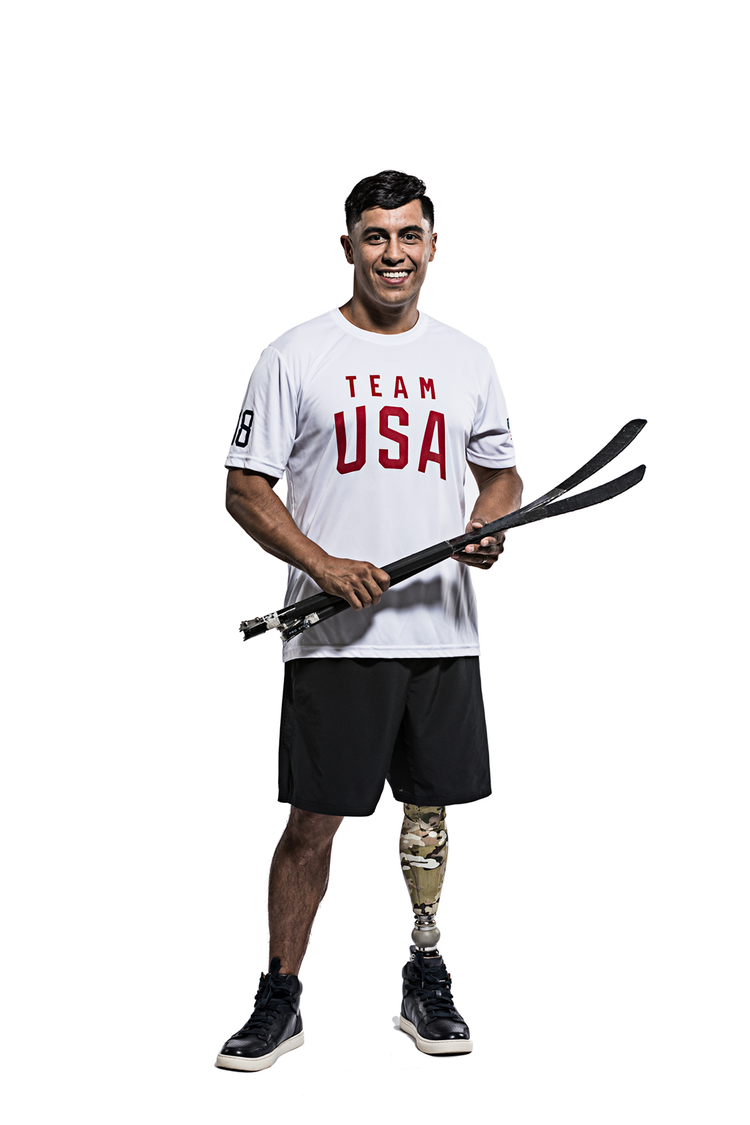U.S. Olympians and Paralympians on What Makes a Good Workout and Why Recovery Matters

Three Team USA athletes talk about their favorite workouts, nutrition and the importance of recovery.
We’ve heard it all before: Workouts are important, but proper nutrition and recovery are also key to the success of any athlete.
24Life asked three U.S. Olympic and Paralympic athletes to share their favorite (and least favorite) workout, what constitutes a great workout, how important nutrition is and what they do to recover.

Elana Meyers Taylor U.S. Bobsled
What constitutes a good workout for you?
A good workout to me is usually a culmination of me pushing myself on every single movement and me going out there and giving everything I have for every single movement. Whether it’s squatting as much as I can or just doing a bench workout to maintain my strength; it doesn’t matter what it is—just going out there and performing to my full potential.
You only have 24 minutes to work out; what do you do?
I would do a quick, light circuit and make sure I get in some squats and some Olympic lifts—a power clean or a snatch or something like that. Three minutes of squatting, for instance, and just go repetition after repetition, maybe 30 seconds on, 30 seconds off. Same with Olympic lifts, power cleans or things like that.
What’s your favorite workout to do in the gym?
Squats. Back squats.
Least favorite?
I’m not an upper-body person.
What part does nutrition play in your training?
Nutrition plays a huge role in my training. It’s kind of like a Formula One car. You’re not going to put regular, unleaded gas in a Formula One, so why would you do that to your body? You really have to make sure you’re putting in the most sufficient and best fuel for your body to get the best outcome.

Gus Kenworthy U.S. Ski & Snowboard
You have 24 minutes to work out, what do you do?
I would do a bunch of supersets or create a circuit of three or four workouts and do high-intensity, low-rest workouts. I actually am in that situation a lot, where I’ll only have 30 minutes at the gym. You can get an amazing workout by alternating between a couple of different body parts, so you’re not exhausting one muscle group, and do three or four exercises, take a minimal break, work super hard, and you’re out of the gym in 20 minutes.
What’s your favorite gym workout and your least favorite gym workout?
I think my favorite gym workout is overhand curls because you hit a bunch of different parts of your arm. And my least favorite workout is probably squats because I have to do leg stuff all the time and it’s so hard—but it’s fun.
Do you like to take group classes?
When I’m stuck in a rut at the gym, I’ll do a group class. That’s a fun way to get mixed in with other people and do something that you wouldn’t do otherwise. And you’re still going to get a good workout. You feel good when you leave, but it’s completely different to what you would’ve done by yourself.
What kind of group classes do you take?
I’ve taken group TRX classes. The TRX is amazing and so versatile. I’ve done group spin classes, and I almost do no cardio on my own in my own workouts; it’s all just weight training. So that’s a good way to mix it up and, I mean, that kicks my ass.
What part does nutrition play in your training?
It does play a big part in my life in general. I think that when I’m eating well, I feel so much better, and I think that I look better and I’m happier. For me, nutrition is more just for my own lifestyle rather than for sport. It’s not like I’m carb-loading so I have endurance the next day or anything like that. It’s just how I feel I perform the best and feel the best when I’m eating well.
What helps you bounce back after a particularly challenging workout?
Sleep. Honestly, the only way to bounce back after a particularly intense workout is sleep. It’s the best way to feel better. And I feel like if you have a hard workout and you go home and you’re only getting five hours of sleep, you’re going to be so sore the next day. But if you can get that full eight hours, you’re going to feel so much better.

Rico Roman U.S. Paralympic Sled Hockey
How do you know when you’ve done a good workout?
I have an amazing trainer, Anthony. He’s also an ex-service member, Army Ranger. It’s seeing the little smirk on his face when I’m [working so hard I’m] shaking, whether it’s doing push-ups or weights. Relaying back to him the things that I noticed when I was on the ice that worked really well or I feel like I need to work on—that’s a key part in making a great training regimen.
What’s your favorite thing to do in the gym and your least?
My favorite thing to do in the gym is lift weights and the SkiErg. The things I don’t like to do are definitely core workouts. Nobody likes to do core exercises. But not only is it very important for my sport to do core exercises, just walking around on a prosthetic leg requires a lot of core strength.
How do you recover quickly so you can come back the next day and do it again?
Stretching, hydrating, eating right, foam rolling. And at the United States Olympic Training Center, they have sports medicine, which will get you right. You get little bumps and bruises.
So especially as you get older, how important is recovery?
I don’t know about being older. That’s a number and it’s in your head. I don’t think like that. I think, “Hey, I’ve got to beat the youngest, fastest player on our team.” Whether he’s dusting me or calling me old man, I’m going to keep improving because I’m trying to be the best.
Photo credit: Tom Casey, box24studio.com (3)